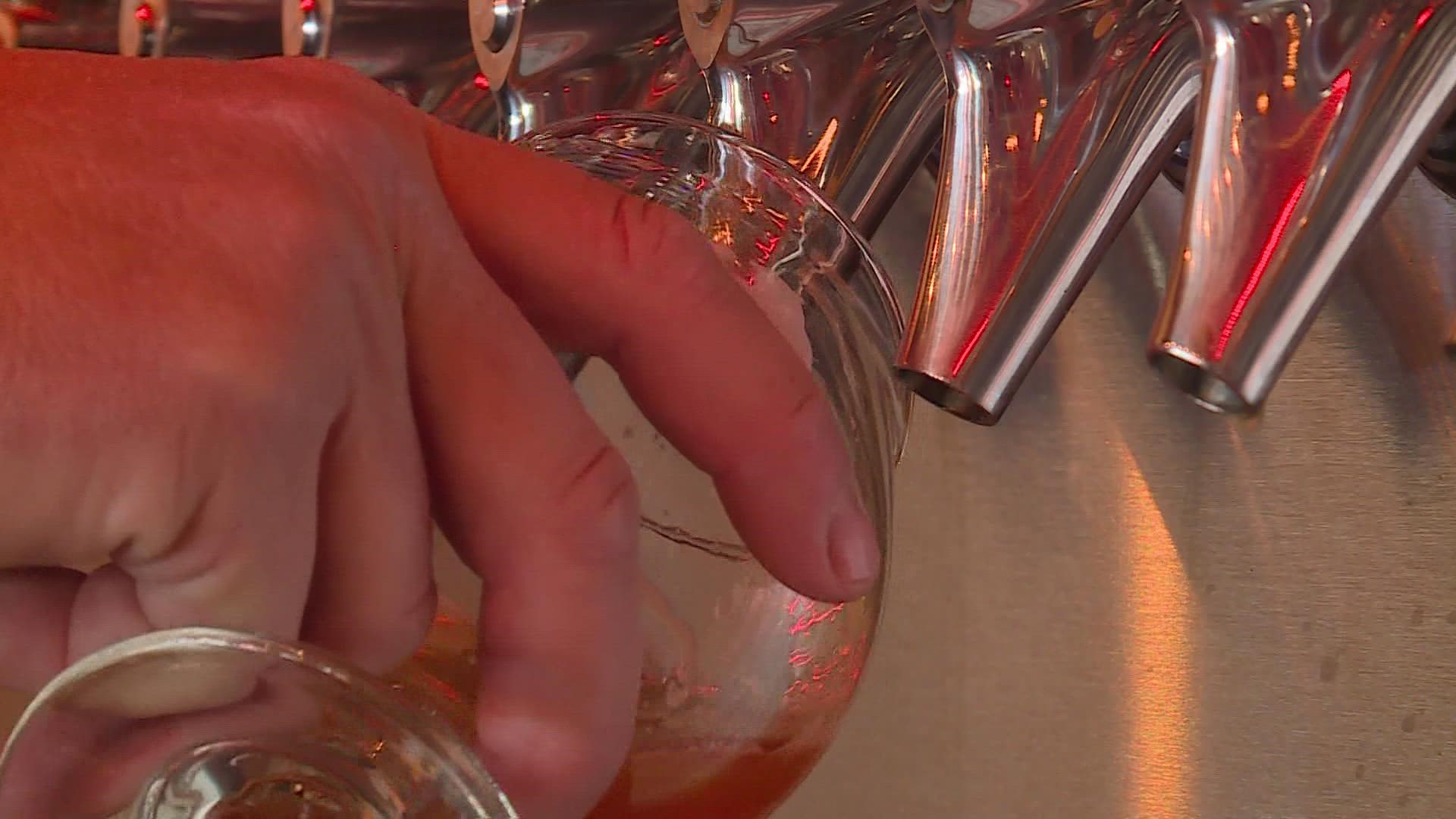CASTLE ROCK, Colo. — Some beer companies say you can taste the Rockies in their product, but if the state passes a new regulation, it could be wastewater in your beer instead of snowmelt.
The regulation would apply to all potable water, not just beer. But one brewer in Castle Rock says he's already had a taste of the future.
105 West Brewery is named for the 105W meridian of longitude which aligns almost perfectly with Interstate 25 from Cheyenne to Pueblo, connecting all the Front Range cities in between including Castle Rock.
They brew about 2,000 barrels of beer every year, which equals 4,000 kegs, or about 600,000 pint glasses. And they make 25 different flavors of beer.
But it's a special edition brew that they made for a wastewater engineering conference in 2017 that has brought the local brewery back into the news. The water group was looking for a good way to prove the point that recycled wastewater is clean and safe, and 105 West took them up on an offer.
“We made a hefeweizen with it," said Eric Seufert, owner of the brewery. "And it tastes like any other beer.”
Direct Potable Reuse
Well now, in 2022, the State of Colorado may become the first state to regulate the process of treating and using wastewater for potable purposes. It's called direct potable reuse (DPR).
That's essentially treating wastewater at a facility and sending it straight back to your home or business. The state said there are currently no system-wide or regularly used DPR systems in Colorado.
In an indirect way, all of our drinking water is recycled. Wastewater gets filtered and treated in a facility, then released back into the river or groundwater system, or pumped directly into a reservoir.
"That water is still highly processed," said Greg Fisher, manager of demand planning at Denver Water. "It's basically treated to about 1,980 drinking water standards."
Once that water is back into the environmental system, it becomes available to be collected and reused. Which includes being retreated to potable standards by another utility.
Utilities can also choose to deliver that non-potable recycled wastewater to certain clients. Fisher said last year, Denver Water delivered 7,200 acre-feet (2.3 billion gallons) of non-potable recycled water for use on parks, golf courses, the Denver Zoo and for use at power plants.
Sewage to Brewage
Seufert said all 25 beers on their menu start with crisp clean Colorado water, but it’s not the water that makes the beer.
“Coors makes a good branding commercial about where they get their water – but it’s just water,” he said.
He said brewers will change the water profile anyway. They add salts and minerals to help sculpt each flavor, even before they add any of the bold flavors like malted hops and barely.
"The recycled wastewater that we used was actually cleaner than most potable water you'll find," he said. "Almost like reverse osmosis water, it had nothing in it, not even any minerals."
He said it was like starting the brewing process with a completely clean slate. They had to build the water back up by adding the mineral content to fit the hefeweizen beer profile.
He said the extra clean recycled wastewater is ideal for a brewery that makes so many different kinds of beer. He did add, though, that natural water hardness can give a beer a geographical identity.
"Guiness comes from Dublin because they add roasted malts to their famously hard water there," said Seufert. "Pilsner comes from Pilsen in the Czech Republic, which in known for their soft water."
He said 105 West does not plan to make any more beer with recycled wastewater, but if the Town of Castle Rock, which is where their water comes from, switched to the DPR process, he would gladly use and support that water.
The state Water Quality Control Commision is scheduled to make the final vote on the new regulation in the next two months. But it could take years before we see any utilities adopt the method of using recycled wastewater because they would have to first install new treatment facilities.
Jeff Fisher with Denver Water said they don't have any immediate plans to add DPR, but they've already run several test and demonstration projects. He also said that there is enough interest in the water utility community that it's important that the State of Colorado take the lead in regulating the process.
"If you asked me if we'd be doing it in 50 years, I would say yes, but I couldn't say at what point between now and then it would happen," said Fisher.
As the water crisis in the western United States deepens every year due to low snowpack, Seifert said he's already had a taste of a better future.
“Every business is going to be using it for every product," He said. "Every restaurant, every beverage manufacturer, every coffee shop. They’re probably all going to be using that water.”
SUGGESTED VIDEOS: Latest from 9NEWS

